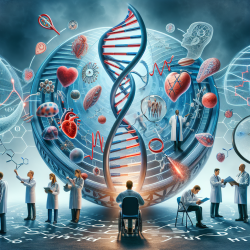Introduction
Workplace mistreatment, including discrimination, abuse, and harassment, is a significant issue in many professions, including emergency medicine. A recent study published in JAMA Network Open titled "Prevalence of Discrimination, Abuse, and Harassment in Emergency Medicine Residency Training in the US" sheds light on the prevalence and impact of these issues among emergency medicine residents. The study's findings highlight the need for educational interventions to improve the well-being of residents during their training and beyond.
Key Findings
The study surveyed 7,680 emergency medicine residents across the United States and found that 45.1% reported experiencing some form of workplace mistreatment during the most recent academic year. The types of mistreatment reported included:
- Gender discrimination (29.5%)
- Racial discrimination (18.0%)
- Sexual harassment (14.7%)
- Verbal or emotional abuse (29.0%)
- Physical abuse (4.6%)
Furthermore, 2.5% of residents reported having suicidal thoughts, with mistreatment being a significant contributing factor.
Implications for Practitioners
For practitioners and residency program leaders, these findings underscore the importance of creating a supportive and inclusive work environment. Here are some strategies to consider:
- Implement Educational Interventions: Develop training programs focused on diversity, equity, and inclusion to educate residents and staff about the impact of mistreatment and how to prevent it.
- Promote a Culture of Reporting: Encourage residents to report incidents of mistreatment without fear of retaliation. Establish clear reporting mechanisms and ensure confidentiality.
- Support Mental Health: Provide access to mental health resources and support for residents experiencing distress due to mistreatment. Consider implementing wellness programs to promote overall well-being.
- Foster Leadership Engagement: Engage residency program leaders in actively addressing workplace mistreatment. Leaders should model respectful behavior and hold others accountable for their actions.
Encouraging Further Research
While this study provides valuable insights, further research is needed to understand the root causes of workplace mistreatment and develop effective interventions. Practitioners are encouraged to participate in or conduct research to explore:
- The long-term impact of mistreatment on residents' careers and mental health.
- The effectiveness of various intervention strategies in reducing mistreatment.
- The role of organizational culture in perpetuating or mitigating mistreatment.
Conclusion
Addressing workplace mistreatment in emergency medicine residency programs is crucial for ensuring the well-being and career satisfaction of residents. By implementing educational interventions, promoting a culture of reporting, and supporting mental health, practitioners can create a more positive and inclusive work environment. For more detailed insights, practitioners are encouraged to read the original research paper.
To read the original research paper, please follow this link: Prevalence of Discrimination, Abuse, and Harassment in Emergency Medicine Residency Training in the US.










